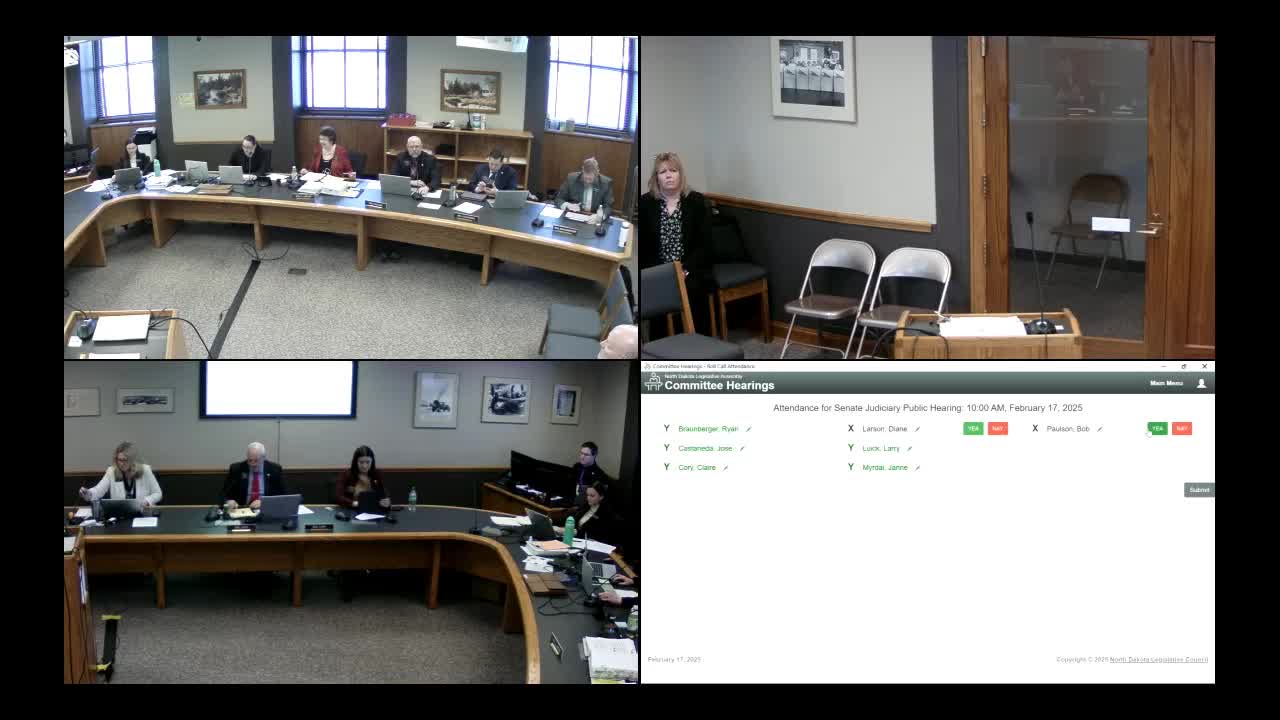Article not found
This article is no longer available. But don't worry—we've gathered other articles that discuss the same topic.
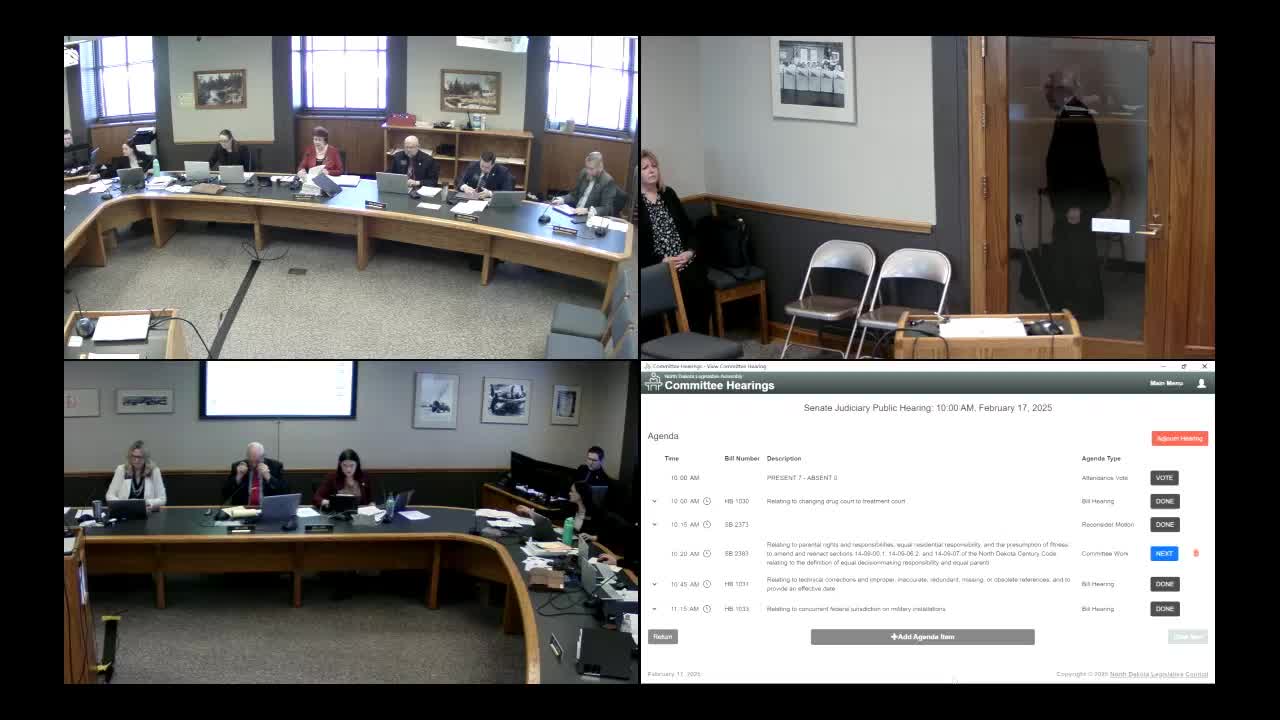
Senate committee adopts large overhaul amendment to family law bill, advances SB 2383 as amended
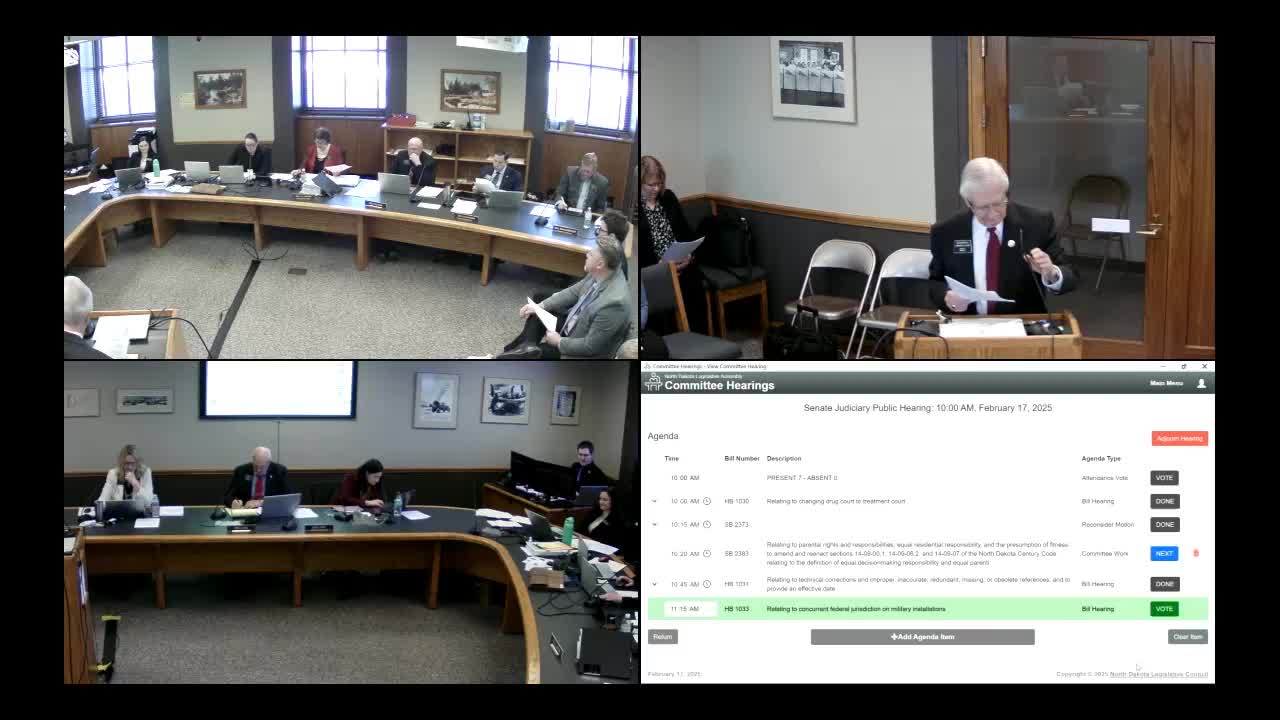
Committee backs bill allowing state to accept concurrent juvenile jurisdiction on military installations
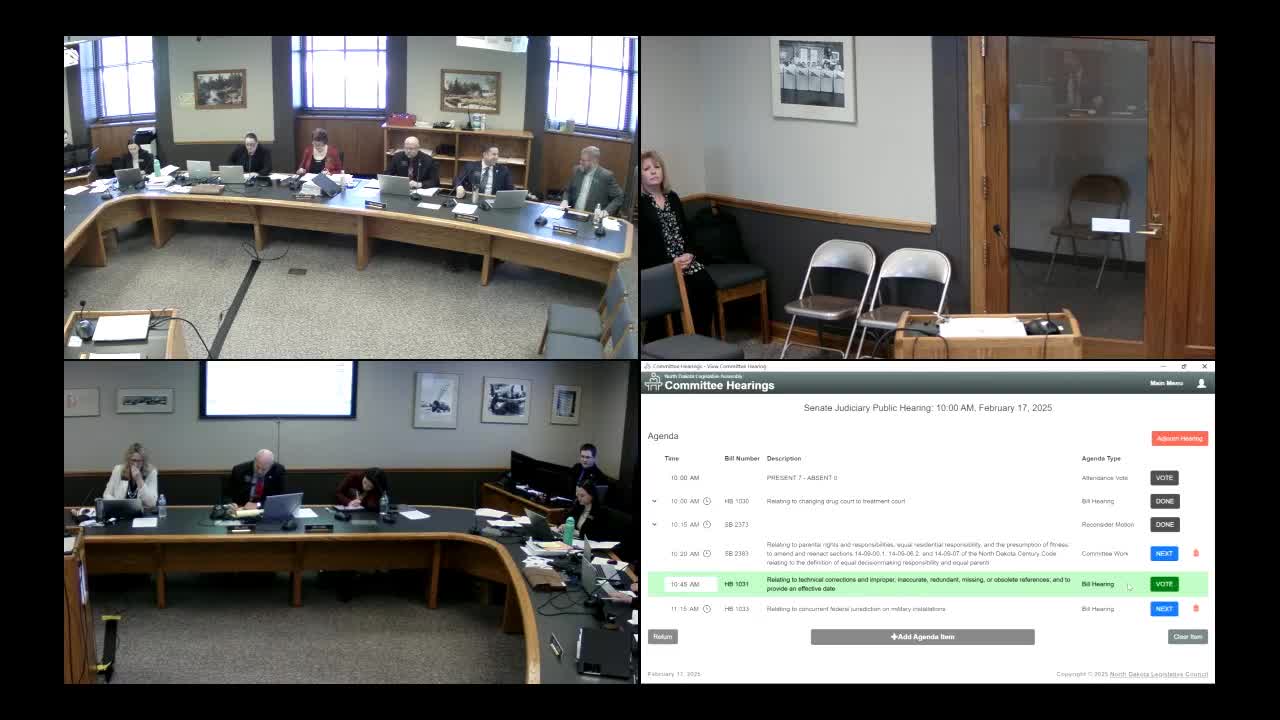
Judiciary committee approves Legislative Council technical corrections bill (House Bill 1031)
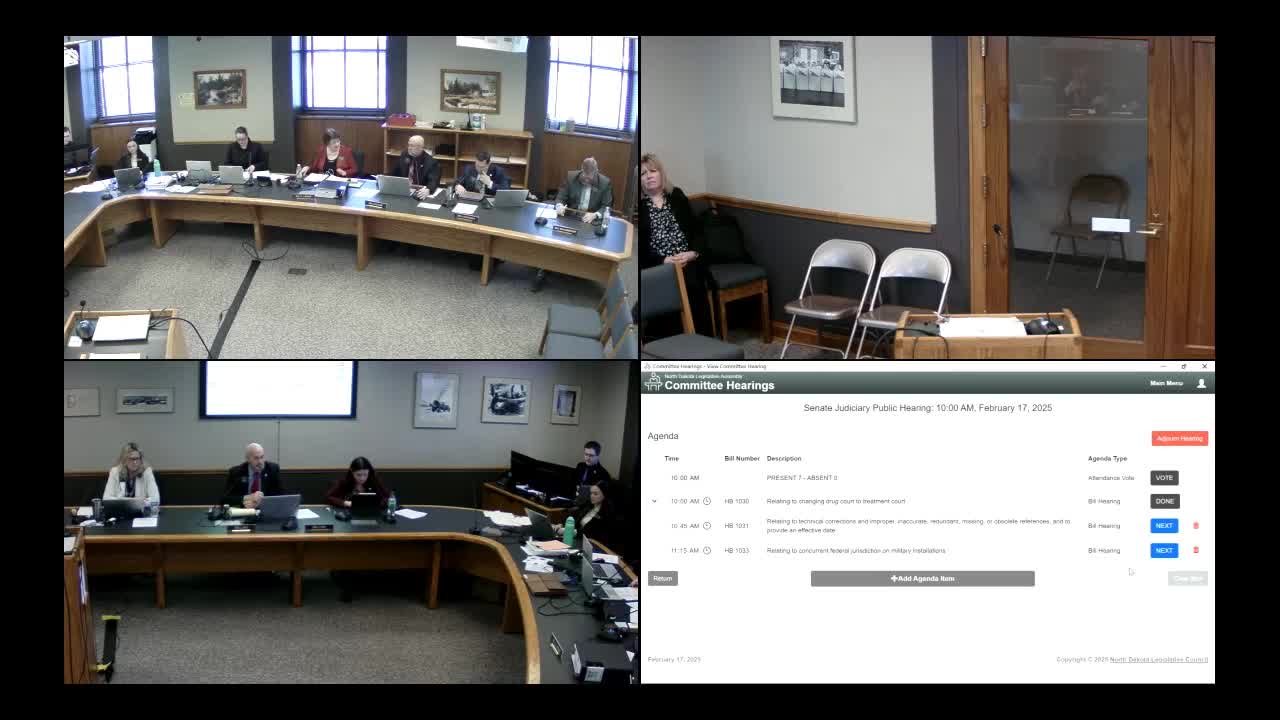
Judiciary committee amends Senate Bill 2373 to protect existing bingo halls from new venue restriction
